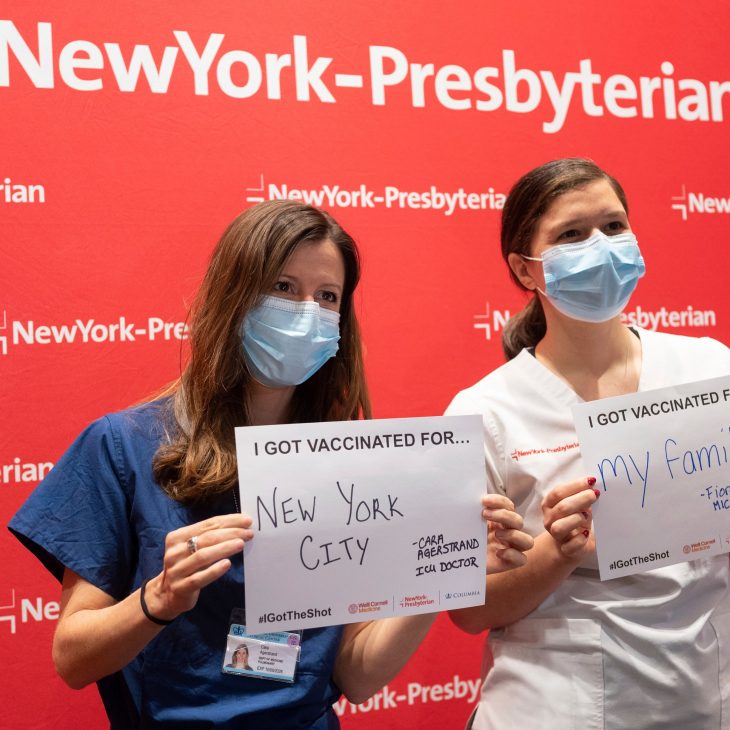How to motivate millions of Americans to get vaccinated? Let faith help.
December 23, 2020

(RNS) — Throughout American history, religious communities have often been the first to respond to disasters, putting people on the ground to offer material support, healing and hope to those most immediately affected.
This is not surprising. Faith groups of every background come with deep networks that can be quickly mobilized, and, motivated by an ethical mandate to care for those in need, they administer care whether those affected are part of their own faith community or not.
Dr. Robert Redfield, director of the Centers for Disease Control, said that the next few months may present the greatest health crisis of our nation’s history. The daily death toll from COVID-19 has passed 3,000 people, and every day 200,000 fall ill, putting hospitals near capacity.
Unlike the natural disasters we’re used to facing, the current crisis is not restricted to one place, but has hit every corner of America. It is affecting small, rural towns, as well as suburbs and cities. And yet it has been particularly devastating for the poor, the elderly, and Black, Native American and Latino populations.
In this terrible moment, the vaccines that have been developed are nothing less than a modern miracle. America’s diverse faith communities can play a central role in facilitating the distribution and administration of the vaccines.
A critical piece of the work ahead is gaining trust between these communities and medical leaders and government agencies. There is no network in American civic life better poised to help broker that trust by providing the spiritual framework and the moral mandate for taking the vaccine to protect ourselves and our neighbors.
Faith communities can also provide an unparalleled logistical network to help in the distribution of the vaccine over the next six months. There are 350,000 individual congregations in the United States, plus 227,000 faith-based nonprofits, many waiting to be tapped to do this work.
The safe and effective distribution of the vaccines cuts to the core of religious groups’ mission, but people of faith also have a particular standing in the battle to bring the pandemic to a close as quickly as possible. Since early spring, congregations have been asked to restrict in-person gatherings, including the holiest days of Easter, Yom Kippur and Eid, not to mention rituals connected to births, deaths and rites of passage.
Clearly, religious communities have not been of one mind about these restrictions, and unfortunately, the pandemic has been politicized in unhelpful ways. Depoliticizing the response is part of the work ahead. Sensitivity is also required as we think of the history of vaccinations in this country, and how varied religious and racial communities feel about receiving vaccines, especially Black and Native American communities.
With thousands of lives on the line, however, America’s diverse religious communities are prepared to unite and meet this moment. Those who are charged with the distribution of vaccine should look toward the power of religious communities as a primary resource for the crucial work ahead.
( Eboo Patel is founder and president of Interfaith Youth Core and author of “Out of Many Faiths: Religious Diversity and the American Promise.” The Rev. Paul Brandeis Raushenbush is IFYC’s senior adviser for public affairs and innovation. The views expressed in this commentary do not necessarily reflect those of Religion News Service.)
Share
Related Articles
American Civic Life
Faith Based Efforts Work in Vaccine Uptake: Now Let’s Make it Easy
American Civic Life
American Civic Life



